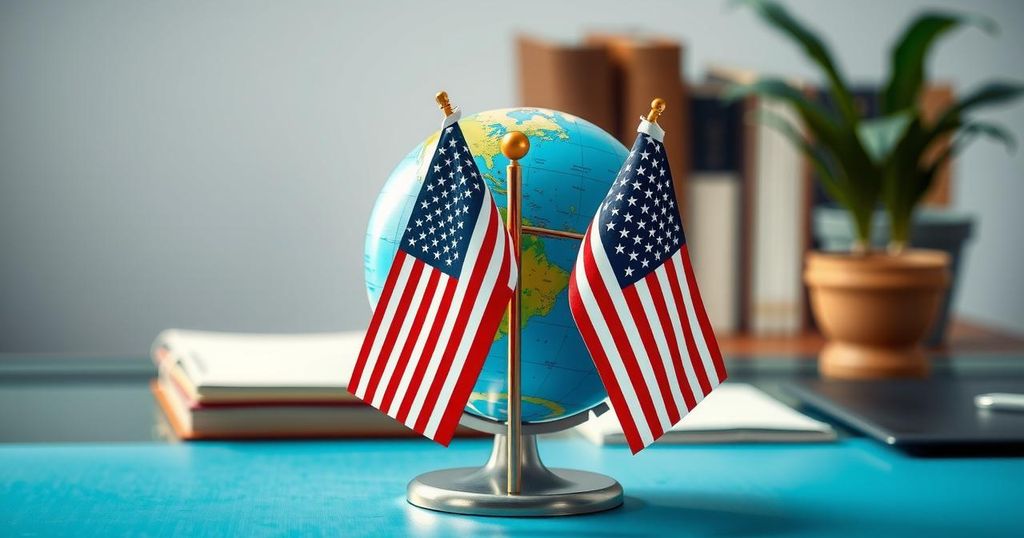World news
AFRICA, ASIA, CIVIC ENGAGEMENT, CONGRESS FOR DEMOCRATIC CHANGE, CONGRESS FOR DEMOCRATIC CHANGE - COUNCIL OF PATRIOTS, COUNCIL OF PATRIOTS, DEMOCRACY, DONALD TRUMP, FODAY MASSAQUIO, JAPAN, JOSEPH BOAKAI, LEADERSHIP, LIBERIA, MASSAQUIO, MONROVIA, MOSES DENNIS, NORTH AMERICA, POLITICS, SOCIAL ISSUES, UNITED STATES, US, US AGENCY FOR INTERNATIONAL DEVELOPMENT, USA
Fatima Khan
0 Comments
Trump’s Comments to Liberia’s President Sparks Controversy
- Donald Trump has faced backlash for condescending remarks to Liberia’s President.
- Comments about President Boakai’s English raised eyebrows given Liberia’s history.
- Critics argue Trump’s remarks reflect a lack of respect for African leaders.
- Liberians are frustrated by the U.S. aid cuts and implications of his comments.
- Some academics viewed the remarks as an acknowledgment of Boakai’s intellect.
Trump’s remarks to Liberia’s President causing anger and confusion.
Remarks made by Donald Trump to Liberia’s President Joseph Boakai have sparked controversy, as many are labeling the comments as condescending. During a White House meeting, Mr. Trump, who appeared quite surprised, complimented the 80-year-old leader on his English, calling it ‘such good English.’ This remark stung because Liberia has had English as its official language since the 1800s, which begs the question of whether Mr. Trump was simply unaware of this historical context. The White House has yet to comment on Mr. Trump’s knowledge of Liberia’s language status, leaving many to speculate on his intention and understanding of foreign nations.
Responses from Liberia highlight frustration over US remarks.
The reaction to Mr. Trump’s comments has been quite mixed. Critics, including Foday Massaquio, the chairman of Liberia’s opposition Congress for Democratic Change-Council of Patriots, have voiced strong disapproval. They argue that the comments exemplify a troubling lack of respect for African leaders, emphasizing that the statement demonstrates a broader pattern of condescension from the West. While President Boakai’s administration has maintained that they took no offense, the general sentiment among Liberians is one of frustration and disappointment, particularly given the close ties between the two nations. Moses Dennis, a businessman from Monrovia, stated, ‘Liberia is a long-standing friend of the USA, therefore Trump should have understood that we speak English as an official language.’
Historical ties complicate responses to Trump’s comments.
Ties between Liberia and the United States run deep historically, dating back to the relocation of freed American slaves to Liberia, forming a bond that many believe should warrant more sensitivity. Recent cuts in U.S. aid, particularly the dissolution of the US Agency for International Development, have further aggravated tensions. Reports indicate that American support made up nearly 2.6% of Liberia’s national income, the highest for any country, leading many Liberians to hope they would be exempt from such cuts due to their historic relationship. Nevertheless, while some like academic Abraham Julian Wennah see a potential compliment in Mr. Trump’s remarks, noting Boakai’s intellectual engagement, the dominant view reflects unease, as it echoes a long-standing Western tendency to express amazement at competence in African leaders, which can easily be perceived as condescending.
In summary, Trump’s remarks to Liberia’s President Boakai have garnered significant backlash for being condescending and disrespectful. While official responses from the Liberian government downplayed the comments, many citizens are displeased, especially in light of recent U.S. aid cuts. This incident underscores deeper issues regarding the perception and treatment of African leaders by Western powers, reflecting historical relationships and contemporary tensions.




Post Comment